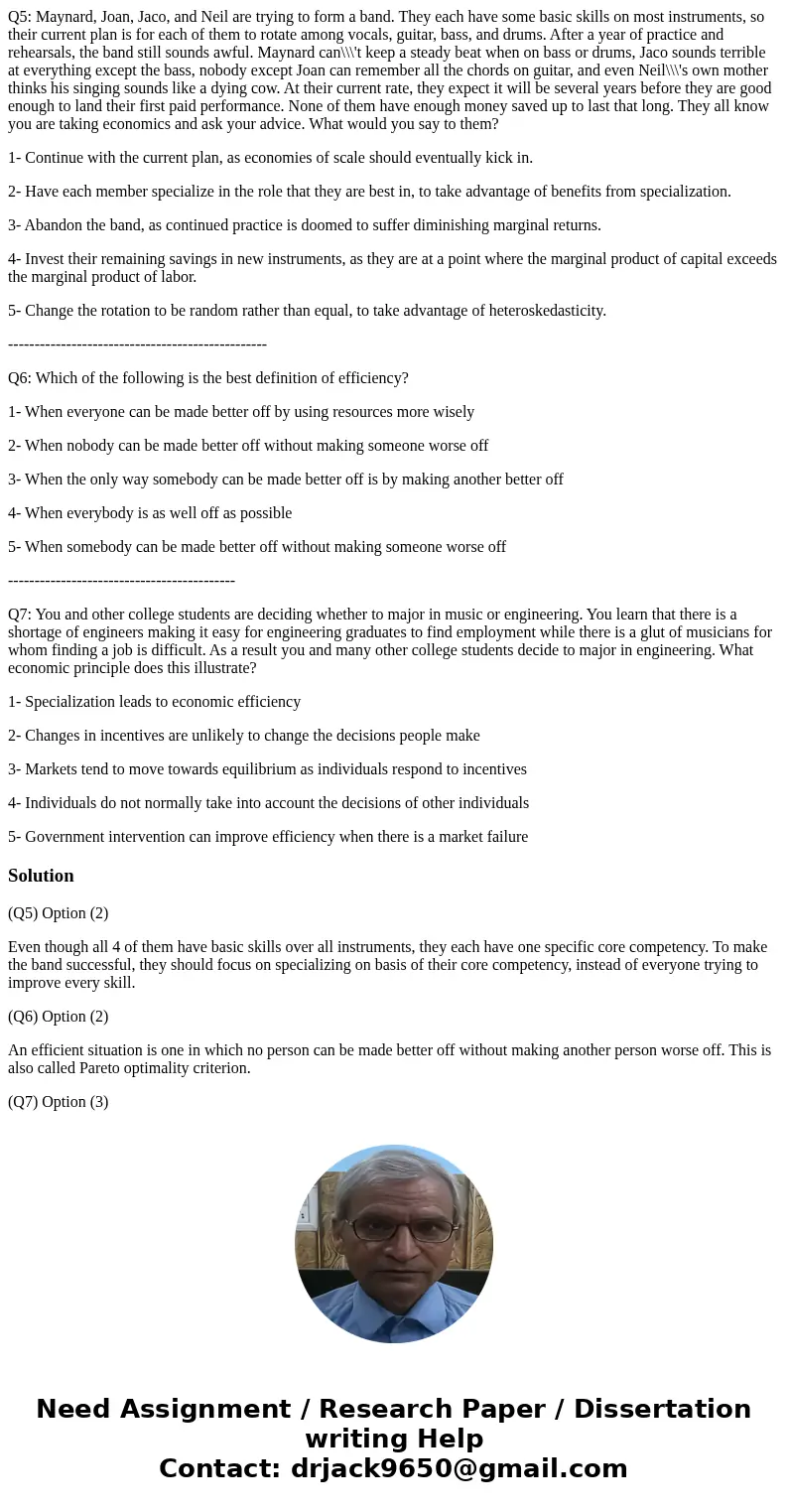Q5 Maynard Joan Jaco and Neil are trying to form a band They
Q5: Maynard, Joan, Jaco, and Neil are trying to form a band. They each have some basic skills on most instruments, so their current plan is for each of them to rotate among vocals, guitar, bass, and drums. After a year of practice and rehearsals, the band still sounds awful. Maynard can\\\'t keep a steady beat when on bass or drums, Jaco sounds terrible at everything except the bass, nobody except Joan can remember all the chords on guitar, and even Neil\\\'s own mother thinks his singing sounds like a dying cow. At their current rate, they expect it will be several years before they are good enough to land their first paid performance. None of them have enough money saved up to last that long. They all know you are taking economics and ask your advice. What would you say to them?
1- Continue with the current plan, as economies of scale should eventually kick in.
2- Have each member specialize in the role that they are best in, to take advantage of benefits from specialization.
3- Abandon the band, as continued practice is doomed to suffer diminishing marginal returns.
4- Invest their remaining savings in new instruments, as they are at a point where the marginal product of capital exceeds the marginal product of labor.
5- Change the rotation to be random rather than equal, to take advantage of heteroskedasticity.
-------------------------------------------------
Q6: Which of the following is the best definition of efficiency?
1- When everyone can be made better off by using resources more wisely
2- When nobody can be made better off without making someone worse off
3- When the only way somebody can be made better off is by making another better off
4- When everybody is as well off as possible
5- When somebody can be made better off without making someone worse off
-------------------------------------------
Q7: You and other college students are deciding whether to major in music or engineering. You learn that there is a shortage of engineers making it easy for engineering graduates to find employment while there is a glut of musicians for whom finding a job is difficult. As a result you and many other college students decide to major in engineering. What economic principle does this illustrate?
1- Specialization leads to economic efficiency
2- Changes in incentives are unlikely to change the decisions people make
3- Markets tend to move towards equilibrium as individuals respond to incentives
4- Individuals do not normally take into account the decisions of other individuals
5- Government intervention can improve efficiency when there is a market failure
Solution
(Q5) Option (2)
Even though all 4 of them have basic skills over all instruments, they each have one specific core competency. To make the band successful, they should focus on specializing on basis of their core competency, instead of everyone trying to improve every skill.
(Q6) Option (2)
An efficient situation is one in which no person can be made better off without making another person worse off. This is also called Pareto optimality criterion.
(Q7) Option (3)
Since all students make decisions based on what incentive their decision could result (that is, taking up engineering will fulfill the market shortage of engineers), the market for engineers will tend to move toward equilibrium as number of engineers go up.

 Homework Sourse
Homework Sourse